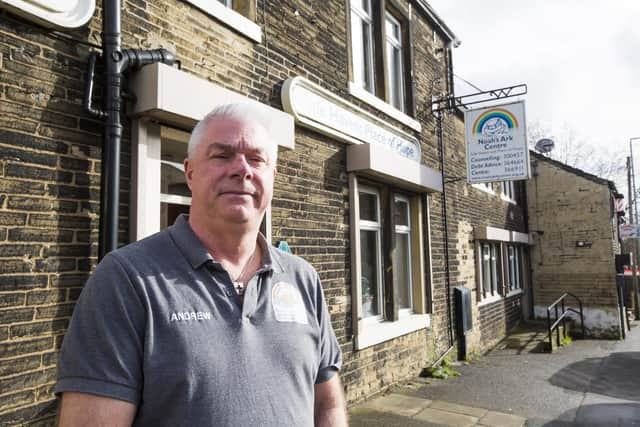New figures show massive increase in use of bailiffs by Calderdale Council to recover debt over last three years


A Freedom of Information request by the Halifax Courier has revealed that the use of enforcement action via bailiffs by Calderdale Council has risen 31 per cent on council tax arrears, 60 per cent on sundry debts, which include housing benefits overpayments, and 115 per cent on parking fines.
The amount of debt recovered by the council has also increased - by 77 per cent for council tax and 94 per cent for sundry income debts.
Advertisement
Hide AdAdvertisement
Hide AdThe council sent 3,394 cases to external enforcement agencies in 2020-21, which rose to 4,220 in 2021-22 and to 4,447 in 2022-23.


The amount of debt sent was £2,868,790.39 in 2020-21, with £755,411.60 recovered.
In 2021-22, the amount of debt sent was £5,725,173,02, with £1,283,013.83 recovered.
And in 2022-23, £5,085,967.45 was sent to be recovered, with £1,413,752.55 recovered.
Advertisement
Hide AdAdvertisement
Hide AdAndrew Sykes, from the money advice service Noah's Ark Centre in Ovenden, said: "The council don't actually know what percentage of instructions are to people in receipt of benefits. I think they should know this.
"People on benefits are the poorest in society, often the most vulnerable, with challenging lives, often coping with physical and mental illness.
"They're usually poorly educated with a lack of understanding of the importance of bills like council tax and they have poor financial capability.
"I think programs like "Can't Pay, We'll Take It Away!" glorify the bailiff companies.
Advertisement
Hide AdAdvertisement
Hide Ad"What about a new programme - "Won't Pay, We'll Take It Away!" because there's a big difference in how we should be treating the 'won't pays' and the 'can't pays'.
"Hence why it's imperative the council understands more about the situation of the residents they're terrorising with the bailiff companies.
"The bailiff companies don’t care about our town, they care about their profits and first and foremost they’re collecting for themselves not us. "
Halifax MP Holy Lynch said: "I recently met a mum at Noah's Ark who was incredibly distressed about having been visited by a bailiff, due to her inability to pay a truancy fine from Calderdale Council.
Advertisement
Hide AdAdvertisement
Hide Ad"The council have assured me that they only use bailiffs as a last resort, however as too many people are struggling with the cost of living crisis, these numbers reveal the scale of the problem.
"I will be working with Noah’s Ark and Calderdale Council to try and find ways to improve the system, so those in debt are supported with payment plans and options to work through, rather than a knock at the door from a bailiff."
Richard Lane, Director of External Affairs at StepChange, said: "At StepChange, council tax debt is a common problem among our clients, with around a third in arrears.
"Last year the average arrears amount per client was £1,689, up from £1,578 in 2021.
Advertisement
Hide AdAdvertisement
Hide Ad"Councils can sometimes be too quick to resort to the use of enforcement action for council tax arrears, including bailiffs, without always considering whether it is appropriate or if any residents in the household might be vulnerable.
“Local councils can do great work to support residents in financial difficulty, so we would urge them to ensure vulnerable households with council tax debt are supported and engaged with, rather than be subjected to a bailiff visit.”
Calderdale Council’s Cabinet Member for Resources, Coun Silvia Dacre, said: “The Council does not refer any debts to external enforcement agents lightly, and we explore other ways to collect income before we do so.
“The Council has a statutory duty to administer and collect Council Tax, which provides approximately £110 million of income to allow us to deliver services across the borough. We want to do this in the most effective way possible whilst supporting residents to avoid financial difficulties in future.
Advertisement
Hide AdAdvertisement
Hide Ad“Unfortunately, where we have been unable to make contact or agree payment with an account holder, then the case may be passed to an external enforcement agency. Last year less than five per cent of accounts were passed to enforcement agents.
“With parking charge notices (PCNs), there is a statutory process which we follow. This includes issuing four documents before any debt is referred to an enforcement agent. We can also consider extended payment options, if people contact us as soon as possible, to let us know they are facing difficulty paying a fine. In addition, a debt respite scheme called Breathing Space, can also be applied for PCNs: Debt Respite Scheme (Breathing Space) guidance for creditors - GOV.UK (www.gov.uk)
“In any instance, all of the agents that we use must be compliant with their own codes of conduct, and the Civil Enforcement Association (CIVEA) code of conduct.
“We understand that many people are facing increasing financial pressures due to the cost of living crisis and the Council works extremely hard to identify customers who are vulnerable or who are struggling with payments.
Advertisement
Hide AdAdvertisement
Hide Ad“We have a dedicated Early Advice and Support Team who work proactively to identify families or individuals who may be struggling to pay their essential bills. If anyone in Calderdale is experiencing this situation, we encourage they make early contact with the Council, to enable us to assist or signpost to available support as soon as possible.”